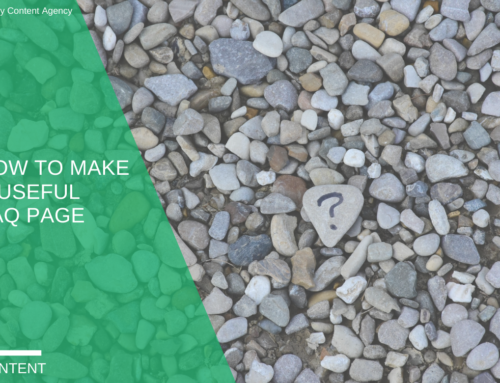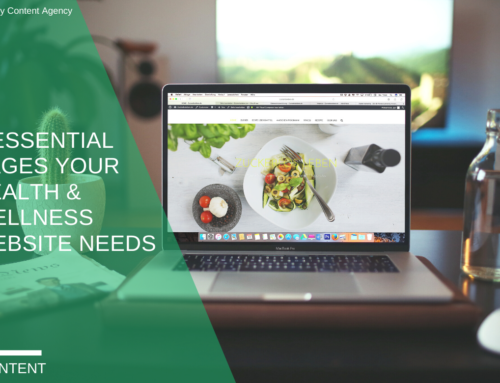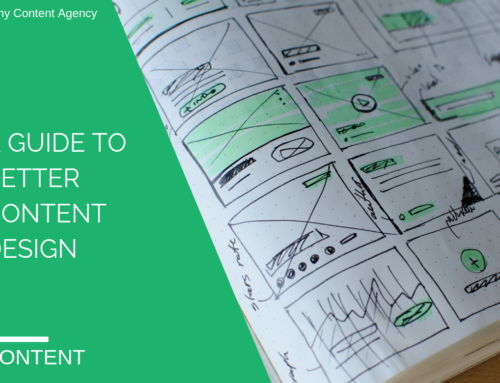Authoritative content is content that stands on its own, as informational and educational. In comparison, sales content has a clear agenda aimed at selling a particular product or service or promoting a particular bias. Authority content is usually not about the product. Its usually about a related topic, designed to inform potential customers for the sake of education and for the purpose of adding value.
The benefit of producing authoritative content is that customers start to associate the brand with expertise and being a trusted source of information, therefore making them more likely to purchase from the brand. The more professional, well-researched, legitimate and trustworthy the content is, the more authoritative the brand seems.
When dealing with health, wellness or medical content, it’s crucial that your content be authoritative, not just because you want to improve your brand’s trustworthiness but because it’s your responsibility as a product/service provider in a field that literally impacts people’s health.
It’s important that if you are going to produce educational content that it be well-researched, accurate and backed by science. There’s too much questionable health content in existence already, and consumers are (rightfully) becoming distrustful of it. This creates more opportunity for brands to demonstrate expertise and gain the trust of loyal customers.
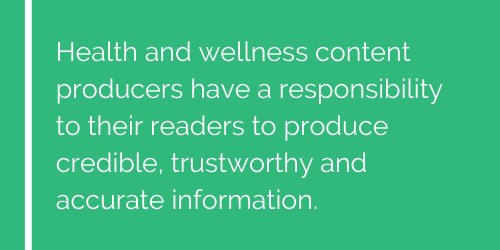
If your brand has a goal of building authority in your health and wellness niche, then here are a few suggestions on how to make your content more trustworthy, reliable, and of course, authoritative.
1. Statistics
Statistics are a good way to drive home certain key concepts. Unfortunately, statistics are often thrown around without context, and many of their sources are questionable.
When dealing with statistics about disease rates or treatment effectiveness, it’s critical to only use figures from sources like the CDC, the WHO, universities or accredited associations.
With that caveat out of the way, statistics are a good way to educate customers and bring awareness to important topics — whether it’s the rates of diabetes, the prevalence of certain manageable diseases among men vs. women, or screening and prevention effectiveness. Find topics that are important to your customers and provide them with awareness because awareness is empowerment.
2. Medical Definitions
Medical definitions are not just a good way to build authority and educate but also to break up your content and improve readability. They also boost rankings and can help you earn snippet spots on results pages.
You can use medical definitions to introduce a topic, set the tone for the article and, of course, clear up terminology that’s commonly misunderstood.
Pull and cite medical definitions from trusted sources like Harvard Medical School for physical health or the APA for mental health.
3. Studies
Citing and linking to peer-reviewed medical studies published in journals is an excellent way to add authority to your website. If you’re educating potential customers about a disease or treatment form, finding relevant studies can help add credibility to your topic.
But there’s a right way and a wrong way to reference studies. When citing studies, it’s important to summarize what the study was about—what the researchers were investigating and how. Next, explain the results of the study and the implications of the findings. Finally, state any limitations of the study, which the researchers usually acknowledge themselves.
When describing study results, don’t generalize, don’t draw your own conclusions and always link the reader directly to the research article to encourage them to have a look for themselves.
Also, make sure to clarify how the studied was designed. Was it performed on humans, animals or in test tubes? If it was done in humans, was it a placebo-controlled study and were the participants randomized into their groups? Were both the researchers and the participants “double-blind” to which group received which treatment? These are essential aspects of study conditions to clarify with the reader to further educate them on the significance and credibility of the study.
But where can you access studies and how can you stay up-to-date on specific research? One way is to create Google Alerts for studies on particular topics so you’ll be notified whenever new research is published or research articles have been updated. You can also search databases like Science Direct and PubMed.
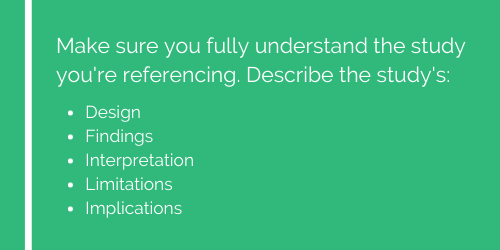
4. Expert Quotes
Bringing in an expert’s take on the subject is a useful credibility and authority-building tool. You can use existing quotes you found on other published pages, as long as the quote has been properly introduced and linked back to the original source.
If your content department is developing a particularly valuable piece of content that’s going to be used for pillar purposes, then it’s worth flexing some journalistic muscle and reaching out to an expert directly for quote in your content.
If you have experts on staff, such as an in-house dietician, Chief Medical Officer or another certified health professional, then, of course, you’ll want to get their take on the subject.
When using expert quotes, always introduce the expert and establish their credibility and experience. When publishing your content, make the quotes prominent (develop a style standard for quotes) to improve readability and build authority.
Examples of Authoritative Health Content
There are many examples of authoritative content from publishing companies (Healthline, WebMD), but what about brands who are product/service providers and content publishers?
Here are two* that stand out to me as being dedicated to producing high-quality, authoritative content that’s well-researched and published against a high standard of integrity:
Noom
As content producers, we can appreciate the amount of work that has gone into much of Noom’s digital content. It’s well-researched, thorough and realistic, giving readers a full set of facts about the health topic in question.
This guide to Taurine, Caffeine and Your Health is an impressive 6500-word+ ultimate guide that references over 40 research studies and articles. The studies are all properly referenced and described, and the writer doesn’t try to over-extend any claims.
This article isn’t a one-off. The website consistently publishes long-form guides on a range of topics. Many of their articles are structured as highly readable guides with actionable information. Noom’s content team is setting a high standard for what consumers can expect from digital content.
Onnit
Another brand that is also heavily into content publishing, along with its core products and services, is Onnit. They seem to have a rigorous editorial process, whereby their health and medical content is reviewed by an in-house team of medical, health and fitness professionals, including two MDs, a Registered Dietitian (RD), a former university assistant professor (PhD) and a Certified Strength and Conditioning Specialist.
Much of the medical content they produce appears to be carefully written with relevant research and articles brought in to support the readers’ understanding of the topic. For example, this article on sugar and heart disease brings in research from about five different research articles or studies, a few of which are meta-analyses—comprehensive reviews of various scientific findings that combine the unique findings into one overall common result.
The article also makes sure not to generalize findings and explains to readers what researchers actually recommend and conclude, as opposed to just describing the study results. This is important because it means that the author isn’t just stating the results of the studies—they’re actually helping us to interpret what the findings based on what the researchers reported.
Bottom Line on Authority Content
Authority content is like a powerful weapon you can choose to use for good or harm. When you publish medical and health content, you have a responsibility to your readers to put in the time and effort into a well-researched, unbiased account of the topic at hand.
You can improve the credibility and authority of your content by referencing multiple sources and ensuring those sources only come from reputable places. By referencing credible statistics, studies, expert opinions and medical definitions, you’ll already be head-and-shoulders above the majority of the health and wellness content that’s available today.
For more information on producing high-quality, authoritative health and medical content, contact Healthy Content today.
*Neither Noom nor Onnit are clients of Healthy Content nor are the companies affiliated in any way with Healthy Content.


